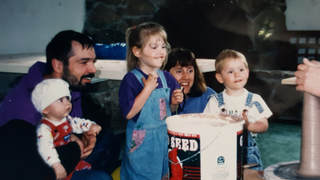 “The Father sent His Son, as Saviour of the world.” (1 John 4:14) I remember my little ones chanting this verse, rehearsing for the church children’s program. I see them like a home movie played against the warm screen of my memories. Eager, earnest, sweet faces, soft cheeks against mine in a hug as we danced around the kitchen. I used to think, “Pity the person who does not have the hand of a child to hold.” Today I am sitting in my empty nest, feeling like a part of my innermost being has been wrenched away. Let me start with a disclaimer: I joyfully release my children to the adult future that God calls them into. We raised our children to actually follow God, even into vocations and locations that may not make sense to the world. We intentionally built a global perspective into their lives. In other words, this is my own fault. But at this moment I need to give voice to the pain, the cost, of letting our kids go. In the space of 8 months, our 3 sons will get married and our daughter returns to work in Africa. Today’s thoughts are mostly about releasing Katie but it is framed by other losses, blessings and change. I dropped Katie off yesterday and as I drove away, I was nearly overcome by the powerful sense that this is wrong and I must turn the car around. An inner scream was building which I had not consciously initiated. My whole being, even physically, felt the stretching of a bond not intended to stretch this far. It felt like I was abandoning my child. I forced myself to keep driving, and not to give into the gut wrenching sobs hovering near the surface. The strange thing is, this is not the first time she is going. You would think I’d get used to this. This is the fourth time she has left for Malawi, and there have been other opportunities that took her far away for months at a time. My sons, too, have travelled far away for school before. She is going with excitement and joy to a country that is now home to her, to a people that she has grown to love. God has uniquely gifted and equipped her. She is an amazing young woman who has already made a difference in changing the lives of the most vulnerable on the planet. She can’t wait to go back and begin this new chapter. Her previous terms included many challenges. She experienced serious illness, poisonous snakes in the bedroom, parasites, and relational heartbreak. As a missional mom, releasing her to the joys of her life overseas is ‘simply’ bittersweet. But releasing her to the hazards brings stormy seas to my soul. I am her mom. I am supposed to protect her. The utter helplessness of skyping with her, when she was so sick she could hardly breathe enough to talk, was brutal. It would take 30 hours of travel to get to her. The needs of family members at home, the cost of the ticket and of time off work, all conspired to keep me helplessly on this side of the ocean.  God has 2 words for me in this: I know how you feel, and trust Me. God released His Son to travel to a new home. Jesus loved the nation, the people, the world that was his second home. When I think of Katie moving from a developed nation to the poorest country in the world, this only gives me a glimpse of what Jesus gave up, to come to earth. There were everyday hazards, challenges that He faced, as well as the ultimate suffering and death. God the Father knows how I feel. He is the sending God, who let His Son go. They are on mission together. I feel like proclaiming with God, “This is my beloved daughter, with whom I am well-pleased!” (Matthew 3:16-17) God invites me to trust Him with her. He loves her even more than I do. He has been preparing her for this mission. The beautiful thing is that God is also using every day of her life to draw her closer to Him, to show her more of His wonderful character, and to make her into the best version of herself. Emmanuel, the God with us, is with me and with her. He holds both of us. This is a bond that cannot be broken. [To find out more about Katiana’s work in Malawi, follow her on Instagram @katesmagoo. She also occasionally shares on http://www.isaiahoneseventeen.ca/ ]
1 Comment
The snow hasn’t even completely melted away yet, but the temperatures have gone up a bit and life awakens in the woods. It’s a virtual resurrection. Once again the heron swoops down to the lake, a skinny bear comes out of hibernation and is looking for food, and a snapping turtle crosses the path. The first few flowers such as coltsfoots and daffodils break through the ground and attract our attention with their bright yellow blossoms. And the utter silence of the snow-covered winter woods has completely vanished: every night there is quite the noisy racket going on around ponds, lakes, swamps and bogs. It’s a chirping chorus that goes on and on and sounds like a mixture of crickets and chicks having a shouting contest. This free concert is brought to us courtesy of the spring peeper (or more likely a few hundred of them). These are tiny frogs that are only 2.5 - 4cms long and weigh between 3 and 5 grams. The males have a vocal sac that they can inflate, and as the air escapes out of this balloon under their mouths, it makes a high pitched sound. It’s the mating call of these frogs, a one-note love song that is repeated about 40-50 times a minute. This symphony is a sure sign of spring and the reason for the name of this frog. On their backs these frogs have the marking of a cross, and therefore their scientific name is Pseudacris crucifer, which literally means “cross-bearing false locust”: a perfect description of their cross-like markings and cricket-like musical abilities. These frogs appear so early in the year that they sometimes freeze. But their blood chemistry is designed in such a way that they can stay alive up to a week in a frozen state and then thaw out and continue to hop around and sing their love song. They are a model of the resurrection life.
As Christians we too are resurrected “cross-bearers” modelling the new life Christ has given us. The mark of discipleship according to Jesus is cross-bearing: “Whoever wants to be my disciple must deny themselves and take up their cross and follow me.” (Mt.16:24). And in a very real way we have been crucified with Christ and therefore we no longer live, but Christ lives in us. The life we now live in the body, we live by faith in the Son of God, who loved us and gave Himself for us. The Amplified version expresses this truth of Gal.2:20 this way: “I have been crucified with Christ [that is, in Him I have shared His crucifixion]; it is no longer I who live, but Christ lives in me. The life I now live in the body I live by faith [by adhering to, relying on, and completely trusting] in the Son of God, who loved me and gave Himself up for me.” On that basis we live our lives and sing the love song that Christ has put in our hearts. The deep freeze of spiritual winter is over. Resurrection life is real. A new creation is budding. Love is in the air. It’s time to sing our song again and again. Paul puts it this way in 2.Cor.5:14-20: “Christ’s love compels us, because we are convinced that one died for all, and therefore all died. And he died for all, that those who live should no longer live for themselves but for him who died for them and was raised again. So from now on we regard no one from a worldly point of view. Though we once regarded Christ in this way, we do so no longer. Therefore, if anyone is in Christ, the new creation has come: The old has gone, the new is here! All this is from God, who reconciled us to himself through Christ and gave us the ministry of reconciliation: that God was reconciling the world to himself in Christ, not counting people’s sins against them. And he has committed to us the message of reconciliation. We are therefore Christ’s ambassadors, as though God were making his appeal through us.” When you consult a dictionary, the word “to walk” is commonly defined as to advance or travel on foot at a moderate speed or pace; to proceed by steps, to move by advancing the feet alternately so that there is always one foot on the ground in bipedal locomotion. The walker moves about or travels on foot for exercise or pleasure. There are many benefits to walking outdoors. Alanna Ketler, in a facebook post, wrote that “hiking is an excellent way to burn between 400 – 700 calories per hour, depending on your size and the hike difficulty, and it is easier on the joints than other activities like running. It has also been proven that people who exercise outside are more likely to keep at it and stick to their programs, making hiking an excellent choice for those wishing to become more active on a regular basis.” She also cites a recent study published in Proceedings of the National Academy of Sciences which found that spending time in nature decreases obsessive, negative thoughts by a significant margin. Another study conducted by psychologists Atchley and Strayer found that creative problem solving can be drastically improved by both disconnecting from technology and reconnecting with nature. The researchers of this study noted that both technology and urban noise are incredibly disruptive, constantly demanding our attention and preventing us from focusing, all of which can be taxing to our cognitive functions. A nice long hike can reduce mental fatigue, soothe the mind, and boost creative thinking. Maybe that’s what God wanted His people to learn, and so He modeled walking for them. According to the NIV of Gen.3:8, God “was walking in the garden in the cool of the day”. The Message translation paints this relaxed picture of “God strolling in the garden in the evening breeze”. It’s a beautiful image: evidently the supernatural God is connecting with His natural creation, enjoying it, and wanting to have fellowship with mankind whom He had put into that garden. And so He walks in the garden at a leisurely pace, one step at a time, taking in the multifaceted sensations of this nature hike. There is activity, but no rush. There is a designed environment, yet it’s not lifeless concrete structures that dominate the scenery, but a luscious garden. There is no oppressive heat or stagnant air, but a fresh, cool breeze that just invites deep, refreshing breathing. It is more than just a physical experience: it’s spiritual breathing, communion with God, that is encouraged through this picture. (The Hebrew word that the NIV translated as the “cool of the day” and the Message as “evening breeze” is actually the word ruach, which can be translated as wind, breath or spirit).
God created us with legs so we would have ambulatory capacities and be able to amble. And that’s something you are encouraged to do at Kingfisher Crossing: walk the trails, explore nature, breath in the fresh air, listen to the sounds of the forest, observe the majestic white pines swaying in the wind, track an ant carrying a cocoon, taste a few blueberries, smell the distinct scent of tree resin, feel the refreshment as you splash water from the lake on your face and enjoy communion with the One who created it all. That’s why walking can be so wonderful, even worshipful: it can turn into a whole lifestyle of walking with God as the subsequent chapters in Genesis underline. For example, in Gen.5:24 (NIV) we read that “Enoch walked faithfully with God.” The Voice Translation puts it this way: “Enoch had … a close and intimate relationship with God.” A similar thing is said about Noah in Gen.6:9 (NIV) “he walked faithfully with God.” The NLT shows this lifestyle choice even better: “he walked in close fellowship with God.” When we habitually walk a certain path it becomes a way of life. The book of Psalms underlines the choice we have: “Blessed is the one who does not walk in step with the wicked” (Ps.1:1). But: “Blessed is everyone who fears the Lord, who walks in His ways.” (Ps.128:1). And Jeremiah records God’s words in Jer.6:16 (NIV): “Stand at the crossroads and look; ask for the ancient paths, ask where the good way is, and walk in it, and you will find rest for your souls.” By walking with God, the weary and heavy-laden experience true inner peace. Eugene Peterson gives us the essence of this kind of a lifestyle by translating Mt.11:28 this way: “Are you tired? Worn out? Burned out on religion? Come to me. Get away with me and you’ll recover your life. I’ll show you how to take a real rest. Walk with me and work with me—watch how I do it. Learn the unforced rhythms of grace. I won’t lay anything heavy or ill-fitting on you. Keep company with me and you’ll learn to live freely and lightly.” -- Make sure you take that kind of a hike! There is an old, leaf-covered road that passes through the Kingfisher Crossing property: the Old Dillon Road. It used to be the only way to get from Nobel to Dillon. Now traffic flows on a new paved road just about half a kilometer to the North. The new Dillon Road is much wider and more comfortable to drive on, but it misses out on some beautiful views. Most locals don’t even know that there is this secluded lake just South of the Old Dillon Road; they don’t know about Kingfisher Crossing; and they don’t know about the rest that can be found here. This is quite similar to the experience of the people of Israel hundreds of years ago. They were at a decisive point in their national history. They were at a fork in the road. They were at a crossing, and the prophet Jeremiah made them consider their options. They could choose the well-traveled, easily accessible path of their society, or they could look for the almost forgotten, overgrown countercultural path of God. In Jeremiah 6:16 God speaks to His people with these words (from The Voice Translation):
“Stand at the crossing, and consider the ancient path, for it is good and it leads to Me. Walk on this path, and you will find rest for your souls. But they have said, “We will not walk upon this road.” For Israel the choice was between following God, or pursuing their own selfish and idolatrous ways. They chose their own way and ended up in the Babylonian captivity. Kingfisher Crossing was named very deliberately to reflect the reality of standing at a crossing and making a choice. We are called to consider the ancient path. And the further back in time we go in our consideration, exploring the cause and effect relationship over decades, centuries and millenniums, we will come to the conclusion that there has to be an uncaused cause that started everything. Considering the ancient path is good and leads to God, the Ancient of Days, the One who always was and ever will be, the One who was there from the very beginning and who, in Jesus Christ, entered into our humanity, not only to show us the path, but to become the way, the journey, the destination. He is the Alpha and Omega. He is the Way. That’s the way we need to choose. Every day. Every moment. For every situation of our lives. That’s where we will find rest for our souls. Nowhere else! So stand at the crossroad, consider the ancient path and then walk on it. See the options; choose the God-option; and then take one deliberate step after another in the God-direction. That’s where rest is found: not a passive, lethargic and immobile inertia, but an active, motivated and dynamic mobility. It’s called walking with God, and there is nothing more restful for the soul than walking with God. So take a hike and enjoy walking with Him! The Canadian Shield is an area mostly composed of igneous rock which relates to its long volcanic history. It has a deep, common, joined bedrock region in Eastern and central Canada and stretches North from the Great Lakes to the Arctic Ocean, covering over half of Canada; it also extends South into the Northern reaches of the United States. In a sense it is one gigantic granite rock. Granite has always been popular as a building material for Egyptian pyramids, Indian temples, or ancient coffins and pillars of all types. In modern times granite is a sought after material for kitchen counter tops, tomb stones, and curling rocks, and has begun to supplant marble as a monument material, since it is much more durable. How come granite is such a bed-rock stable, durable substance? Looking at its formation explains a lot as the following illustration shows: Intense heat and high pressure is what produces the characteristics of granite. It’s also what produces diamonds, some of the most priced jewels there are. And so it’s no surprise that the Canadian Shield, particularly the portion in the Northwest Territories, has recently been the site of several major diamond discoveries. (In order to pay off our mortgage, we wouldn’t mind finding a few of these rocks on our property. )
Both diamonds (which are some of the hardest materials on earth and used to cut just about anything) and graphite (which is one of the softest substances and used as a dry lubricant) are made of pure carbon. The difference is in what happened to the carbon during its development: thousands of years ago under extreme heat and pressure carbon was formed into diamonds. It’s similar in the Christian life were intense heat and high pressure situations produce the true and precious Christ-like character in believers. Peter writes about the heat aspect: “Beloved, do not be surprised at the fiery ordeal among you, which comes upon you for your testing, as though some strange thing were happening to you; but to the degree that you share the sufferings of Christ, keep on rejoicing, so that also at the revelation of His glory you may rejoice with exultation.” (1 Peter 4:12-13, NASB) James emphasizes the pressure aspect: “Consider it a sheer gift, friends, when tests and challenges come at you from all sides. You know that under pressure, your faith-life is forced into the open and shows its true colours. So don’t try to get out of anything prematurely. Let it do its work so you become mature and well-developed, not deficient in any way.” (James 1:2-4, MSG) While we might not like to hear this and would rather opt for a more comfortable and softer life, in the ones who stay focused on Jesus, heat and pressure are not destructive but constructive in that they build true Christ-like character. In this sense the saying is true that pressure builds character! But James also promises us: “Blessed is a man who perseveres under trial; for once he has been approved, he will receive the crown of life which the Lord has promised to those who love Him.” (James 1:12 NASB) God allows us to go through some hard stuff: tests and challenges, trials and sufferings, pressures and fiery ordeals, so that we become stronger, mature and well-developed in the end, become approved and receive the crown of life. Tracking is defined as following or pursuing the track, traces, or footprints of someone or something; as making one's way through or traversing; as leaving footprints or making a trail of footprints; or as observing or monitoring the course or path of something or someone. In other words: tracks tell us a story and invite us to carefully observe and detect what went on and which trajectory to follow. Scouts, hunters and forensic detectives specialize in figuring out what tracks have to tell us, but most other people ignore the evidence that footprints leave behind.
When the land is snow covered, tracking is easy. There are footprints of mice, squirrels, snowshoe hares, coyotes and deer everywhere in the woods. And together with other signs such as chewed branches, pinecone debris, nests, dens, scat, smells, sounds, or torn carcasses, they tell a story of life and death, of where the animals walked, where they slept, what they ate, where they raised their young, what they pursued, whether they walked slowly or ran at a fast clip and which direction they were headed. Tracking employs all of our senses. It requires of us to be fully awake to the world around us. It teaches us so much about life – and not just the physical aspects of it! Even the apostle Paul encourages us to emulate him in tracking Jesus (in Phi.3:12-4:1 MSG), a pursuit that demands a very focused approach and has huge rewards for those who are committed to this vision: “I am well on my way, reaching out for Christ, who has so wondrously reached out for me. Friends, don’t get me wrong: By no means do I count myself an expert in all of this, but I’ve got my eye on the goal, where God is beckoning us onward—to Jesus. I’m off and running, and I’m not turning back. So let’s keep focused on that goal, those of us who want everything God has for us. If any of you have something else in mind, something less than total commitment, God will clear your blurred vision—you’ll see it yet! Now that we’re on the right track, let’s stay on it. Stick with me, friends. Keep track of those you see running this same course, headed for this same goal. There are many out there taking other paths, choosing other goals, and trying to get you to go along with them. I’ve warned you of them many times; sadly, I’m having to do it again. All they want is easy street. They hate Christ’s Cross. But easy street is a dead-end street. Those who live there make their bellies their gods; belches are their praise; all they can think of is their appetites. But there’s far more to life for us. We’re citizens of high heaven! We’re waiting the arrival of the Savior, the Master, Jesus Christ, who will transform our earthy bodies into glorious bodies like his own. He’ll make us beautiful and whole with the same powerful skill by which he is putting everything as it should be, under and around him. My dear, dear friends! I love you so much. I do want the very best for you. You make me feel such joy, fill me with such pride. Don’t waver. Stay on track, steady in God.” This is not the only Biblical passage about tracks. Talking about Leviathan, a crocodile-like creature, Job says: “He leaves tracks in the mud like a threshing board.” (Job 41:30 ERV) In the Song of Solomon the woman asks about how to find her lover for a rendezvous, to which she receives the response: “If you don’t know your way, most beautiful of women, then follow the tracks of the herds..” (S.o.S.1:8 CEB) It’s not just animals who leave footprints: God leaves evidence of His presence (His tracks) behind which we can then detect. David sings about God in (Ps.65:12 CJB): “You crown the year with your goodness, Your tracks overflow with richness.” And Paul writes in Rom.11:33 (CEB): “God’s riches, wisdom, and knowledge are so deep! They are as mysterious as his judgments, and they are as hard to track as his paths!” Sometimes tracking is easy, when there are clear footprints in an inch of new snow. Other times we really have to look carefully to see any evidence of the presence of a living being. Tracking God is a lot like that, too: sometimes very easy, sometimes more difficult. The disciples literally tracked Jesus down at one time: “Early in the morning, well before sunrise, Jesus rose and went to a deserted place where He could be alone in prayer. Simon and those with Him tracked Him down.” (Mk.1:35-36 CEB) Another time, the crowds who had just been fed miraculously pursue Jesus, and He points out their wrong motivation for tracking Him down and gives them a higher purpose: “I tell you the truth--you are tracking Me down because I fed you, not because you saw signs from God. 27 Don’t spend your life chasing food that spoils and rots. Instead, seek the food that lasts into all the ages and comes from the Son of Man, the One on whom God the Father has placed His seal.” (Jn.6:26-27 VOICE) As we are tracking Jesus, we often get side-tracked, even as pastors and missionaries: we read our Bible to get another sermon out of it, or to help someone with a personal problem, or to get insight into how we should deal with our finances, our work situation, or relational issues. We want our physical, social, professional and relational needs met and often miss out on the real need underneath: the spiritual need for a close relationship with Jesus. That’s the food that lasts, the rest will spoil. So to stay on the right track, let’s keep on tracking Jesus. His tracks overflow with richness of life that lasts. As you walk through the woods or stroll along the lakeshore you might notice trees with fresh injuries or old wounds that managed to heal. The picture on the left shows recent chewing marks, the typical damage a beaver can do to trees. The wound at the base of the beech tree on the right was caused by porcupines. They attack all the northern hardwood species. The teeth marks can be seen even after the wounds are very old. Reflecting on these wounds, brings a few things to mind: on the one hand we realize that life is tough, that we’re under attack, and that there is an enemy trying to bring us down. On the other hand, we can also see the miracle of life created by God, a life that’s resilient, that can be healed and restored and even become stronger in the process. Christians have always experienced these struggles, and severe wounds have been inflicted on them throughout church history. Paul lists a whole litany of woes that he personally encountered (in 2.Cor.11:23-27 VOICE): “I have … taken more beatings, been dragged in and out of prisons, and have been eye-to-eye with death. Five times I have withstood thirty-nine lashes from Jewish authorities, three times I was battered with rods, once I was almost stoned to death, three times I was shipwrecked, and I spent one day and night adrift on the sea. I have been on many journeys and faced the most extreme circumstances: perilous rivers, violent thieves, and threats by my own people and by the Gentile outsiders alike. I have faced dangers in the city, in the wilderness, and at sea; and danger from spies among our brothers and sisters. I have survived toil and hardships, sleepless nights, hunger and thirst without a crumb in sight, bare to the cold.” Paul knew a thing or two about being wounded. But he also experienced help in the midst of his injuries. At Philppi, after having been beaten with rods, mercilessly flogged, chained up in a dungeon and survived an earthquake, the jailor washed their wounds and fed them (Acts 16:33). It also was no small blessing for Paul to have a medical professional as a travelling companion and so he spoke quite fondly of Luke, “the beloved physician” (Col.4:14 NASB). In Lk.10:33-35 (MSG), Jesus tells the parable of a man beaten up by robbers that really needed help, yet was ignored by several people until a “Samaritan traveling the road came on him. When he saw the man’s condition, his heart went out to him. He gave him first aid, disinfecting and bandaging his wounds. Then he lifted him onto his donkey, led him to an inn, and made him comfortable. In the morning he took out two silver coins and gave them to the innkeeper, saying, ‘Take good care of him. If it costs any more, put it on my bill—I’ll pay you on my way back.” Every so often all of us need a Good Samaritan to come alongside of us when we’ve been beaten up and left alone on the sidelines. We need people to take care of our wounds, our acute symptoms, and also provide a referral for longer term rehab and therapy so that these wounds can fully heal. Of course, the most important referral a Good Samaritan can make is getting the injured in touch with the Great Physician, with Yahweh Rapha, with the God who restores us to health, with the God who “heals the broken-hearted and binds up their wounds” (Ps.147:3 NASB), who promises to His people “I will restore health to you, and your wounds I will heal” (Jer.30:17 ESV). But treatment isn’t necessarily easy to go through. In fact, often the doctor has to cut off a bit more infected flesh and increase the wound before it can be healed. Even arborists (tree doctors) will carefully cut away pieces of infected bark to save the life of a tree. 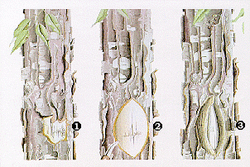 1. Deep trunk wound on cherry tree 2. Trim away loose bark around wound. Shape wound. Make a clean edge between vigorous bark and exposed wood. Use a sharp knife. 3. Wound is healing through callus formation. Help tree maintain its vigor and protect it from further injury God might have to do that kind of surgery in our lives as well. The prophet Hosea talked about that (in Hos.6:1 NCV): “Come, let’s go back to the Lord. He has hurt us, but he will heal us. He has wounded us, but he will bandage our wounds.” When God inflicts wounds on us, it’s not because He hates us, but because He loves us. As Proverbs 27:6 (VOICE) states: “Wounds inflicted by the correction of a friend prove he is faithful”. And God is the most faithful friend we can ever have!
This Healer-God spares no expense to bring total health-giving treatment to us as Peter points out in 1.Pet.2:21-24 (MSG): “Christ … suffered everything that came his way so you would know that it could be done, and also know how to do it, step-by-step. He never did one thing wrong, Not once said anything amiss. They called him every name in the book and he said nothing back. He suffered in silence, content to let God set things right. He used his servant body to carry our sins to the Cross so we could be rid of sin, free to live the right way. His wounds became your healing.” It’s a wonderful, mysterious, but very real exchange: His wounds became the healing for our wounds. It’s what all of humankind has looked forward to and what Isaiah predicted would be accomplished by the Suffering Servant, the Messiah (in Is.53:5 NCV): “He was wounded for the wrong we did; he was crushed for the evil we did. The punishment, which made us well, was given to him, and we are healed because of his wounds.” The healing of all our wounds has become a reality in Christ! Halleluiah! At Kingfisher Crossing you can see exposed bedrock formations in many different areas: on the higher ridges, at the climbing rocks, and all around the Western half of the lake. Of course, the house itself, in true biblical fashion, is built on bare bedrock: it’s an integral part of the design, especially in the sauna (where at times not just the rock is bare and exposed.) 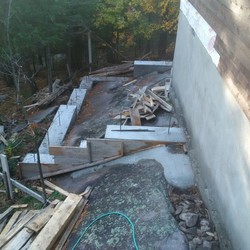 Anchoring the footings of buildings on rock rather than on loose topsoil or sand is smart construction basics. As a skilled carpenter-builder (Greek: tekton = craftsman, artisan) this was part of Jesus’s professional knowledge for His first job. In His second job as a rabbi, He uses this structural know-how to illustrate spiritual truth. Eugene Peterson translates Jesus’ comparison of Luke 6:48-49 in The Message this way: “If you work the words into your life, you are like a smart carpenter who dug deep and laid the foundation of his house on bedrock. When the river burst its banks and crashed against the house, nothing could shake it; it was built to last. But if you just use my words in Bible studies and don’t work them into your life, you are like a dumb carpenter who built a house but skipped the foundation. When the swollen river came crashing in, it collapsed like a house of cards. It was a total loss.” Dictionaries define bedrock as the hard layer of rock beneath looser rocks and soil. In some places, the bedrock is exposed, while in others it lies deep underground. The word can also be used in a figurative way, to mean "the heart of the matter," or "the basic, fundamental principles." It’s this figurative way of understanding bedrock that Jesus is after. He is not primarily concerned with geological soil-engineering or the structural integrity of buildings – He doesn’t want us to build our lives on the quicksand of ever changing human philosophies, popular trends, or shallow pursuits, but He wants our lives to be well-grounded in the bedrock of Biblical truth. This is not a new thought, but it’s something we tend to lose sight of in the busyness of life. Even pastors, missionaries and other professional Christian workers often neglect bedrock truth and focus on topsoil issues, such as church growth techniques, social justice efforts, or engaging in good works. It’s not that we are not aware of, or don’t agree with the bedrock basics, the fundamental principles of how life is supposed to be lived, but we just use Jesus’s words “in Bible studies and don’t work them into our lives”. In the two verses before the passage quoted above we hear Jesus say: “Why are you so polite with me, always saying ‘Yes, sir,’ and ‘That’s right, sir,’ but never doing a thing I tell you? These words I speak to you are not mere additions to your life, homeowner improvements to your standard of living. They are foundation words, words to build a life on.” We have to get back to these foundation words, the bedrock basics, the Rock Himself. King David was far from perfect and had many flaws, but he did one thing really well: he always came back to the Rock. Towards the very end of his life he penned this song (in 2 Samuel 22:2-3, 32; and in part repeated in Ps.18 and Ps 144): “God is bedrock under my feet, the castle in which I live, my rescuing knight. My God—the high crag where I run for dear life, hiding behind the boulders, safe in the granite hideout; My mountaintop refuge…. Is there any god like God? Are we not at bedrock? Is not this the God who armed me well, then aimed me in the right direction? Now I run like a deer; I’m king of the mountain.” In Ps.71 we find a very similar sentiment: “My God,... You keep me going when times are tough— my bedrock, God, since my childhood. I’ve hung on you from the day of my birth, the day you took me from the cradle; I’ll never run out of praise.” The bedrock for life is God Himself. It’s not just Biblical principles that we base our lives on, it’s a personal God that we have a relationship with, who enables us to live the kind of life He wants us to live. Knowledge of principles alone won’t keep our life-structures from being flushed away. We need to be intimately connected to the Rock Himself to withstand the pressures that will inevitably come against us sooner or later. The Voice translation of Luke 6:47 sums it up: “What matters is that you come to Me, hear My words, and actually live by them.” It all begins with coming to Jesus, our bedrock foundation, listening carefully to Him and allowing Him to live out His life in and through us. It’s as basic as that! As you walk on trails through the woods and along the lake or river, you frequently see trees cut down by beavers or loggers, and the stump that’s left is often sprouting new growth. This is quite common with deciduous trees and is a natural way of reforestation. Some of these shoots grow into fully mature trees. What seemed dead and over with is resurrected to new life and fruitfulness. In Isaiah 11:1-5 (MSG) we read about such a situation: “1-5 A green Shoot will sprout from Jesse’s stump, from his roots a budding Branch. The life-giving Spirit of God will hover over him, the Spirit that brings wisdom and understanding, The Spirit that gives direction and builds strength, the Spirit that instills knowledge and Fear-of-God. Fear-of-God will be all his joy and delight. He won’t judge by appearances, won’t decide on the basis of hearsay. He’ll judge the needy by what is right, render decisions on earth’s poor with justice. His words will bring everyone to awed attention. A mere breath from his lips will topple the wicked. Each morning he’ll pull on sturdy work clothes and boots, and build righteousness and faithfulness in the land.” Isaiah uses this extended metaphor to bring real hope to his people. He lived during the time of the Assyrian invasions of Israel and Judah. The ten tribes of the Northern Kingdom of Israel were destroyed by the Assyrians, and later on they even tried to destroy the Southern Kingdom of Judah. It was a very tense situation for those holed up in Jerusalem, as Isaiah recounts in the historical section of his book in chapter 37. The people were stumped about how this would all continue and whether God had given up on them. But in the prophetic sections, Isaiah has already delivered a very hopeful prospect for the royal line of the house of David, that “a virgin will be with child and will give birth to a son, and will call him Immanuel” (Is.7:14 NIV). He has also shown the Northern kingdom, that in spite of its present demise, there is light at the end of the tunnel: “In the past he humbled the land of Zebulun and the land of Naphtali, but in the future he will honor Galilee of the nations, by the Way of the Sea, beyond the Jordan-- In Is.10:32 (NIV) he uses the same metaphor of felling trees and applies it to the enemies of the people of God who will be destroyed: “See, the Lord, the Lord Almighty, will lop off the boughs with great power. The lofty trees will be felled, the tall ones will be brought low.” While there is no hope provided for the enemies of God, who are cut off, there is hope for the people of God, because the shoot from the stump of Jesse, the Messiah, Jesus Christ, will bring about a new, spirit-filled life, righteousness, faithfulness -- in other words: real hope! While our personal situation, our work and our ministry might look at times like a dead stump, because of Jesus living within us, there will always be a new shoot growing. Spiritual reforestation will take place. The kingdom of God cannot be eradicated. As Martin Luther sang: “The body they may kill, God’s truth abideth still, His kingdom is forever.” Sitting by the lake, soaking up the last rays of the day, and thinking about life in the light is a simple but profound pleasure. Just seeing light shine through the fresh green leaves, or observing the changing light conditions at dawn or dusk, or being amazed by the sparkles of light reflecting off the surface of the ripples on the lake, is a feast for the eyes. Without light there would be no colours. Without light we would have a hard time finding our way. Without light, there would be no life. Photosynthesis powers this planet, giving us food to eat and oxygen to breathe. We need light to live.
Light is one of the most vivid images in the Bible. From the first to the last chapter of Scripture light plays a key role. We read in Gen.1:3: “3 And God said, “Let there be light,” and there was light. 4 God saw that the light was good, and he separated the light from the darkness.” And in Rev.22:5 we receive this promise: “5 There will be no more night. They will not need the light of a lamp or the light of the sun, for the Lord God will give them light. And they will reign for ever and ever.” In the prologue of John’s Gospel he very intentionally imitates the opening words of the Torah and shows that the fulfilment of all that the Law of Moses looked forward to can be found in the person of Christ: John 1:4-9: “In him was life, and that life was the light of all mankind. 5 The light shines in the darkness, and the darkness has not overcome it. 6 There was a man sent from God whose name was John. 7 He came as a witness to testify concerning that light, so that through him all might believe. 8 He himself was not the light; he came only as a witness to the light. 9 The true light that gives light to everyone was coming into the world.” So that no one could miss it, Jesus spells it out for us in John 8:12: “I am the light of the world. Whoever follows me will never walk in darkness, but will have the light of life.” And again in John 12:46: “46 I have come into the world as a light, so that no one who believes in me should stay in darkness.” The NT writers love to dwell on that image and the impact that light has on our lives. Peter shows the stark contrast in 1.Pet.2:9-10: “9 But you are a chosen people, a royal priesthood, a holy nation, God’s special possession, that you may declare the praises of him who called you out of darkness into his wonderful light. 10 Once you were not a people, but now you are the people of God; once you had not received mercy, but now you have received mercy.” And Paul writes to the Corinthians (in 2 Cor.4:6): “6 For God, who said, “Let light shine out of darkness,” made his light shine in our hearts to give us the light of the knowledge of God’s glory displayed in the face of Christ.” The Colossians he encourages with these words (in Col.1:12-14): “ the Father… has qualified you to share in the inheritance of his holy people in the kingdom of light. 13 For he has rescued us from the dominion of darkness and brought us into the kingdom of the Son he loves, 14 in whom we have redemption, the forgiveness of sins.” And to the Thessalonians he explains that our confidence in the midst of hardships and our whole identity as Christians is based on being children of light (1.Thes.5:4-5): “4 But you, brothers and sisters, are not in darkness so that this day should surprise you like a thief. 5 You are all children of the light and children of the day. ” Of course, as children of light, our life style needs to reflect this new standing, and the apostles are quick to encourage us to live with Christ at the center so He can shine through us. In Eph.5:8-20 Paul reminds us: “you were once darkness, but now you are light in the Lord. Live as children of light 9 (for the fruit of the light consists in all goodness, righteousness and truth) 10 and find out what pleases the Lord. 11 Have nothing to do with the fruitless deeds of darkness, but rather expose them. 12 It is shameful even to mention what the disobedient do in secret. 13 But everything exposed by the light becomes visible—and everything that is illuminated becomes a light. 14 This is why it is said: “Wake up, sleeper, rise from the dead, and Christ will shine on you.” 15 Be very careful, then, how you live—not as unwise but as wise,16 making the most of every opportunity, because the days are evil.17 Therefore do not be foolish, but understand what the Lord’s will is.18 Do not get drunk on wine, which leads to debauchery. Instead, be filled with the Spirit, 19 speaking to one another with psalms, hymns, and songs from the Spirit. Sing and make music from your heart to the Lord,20 always giving thanks to God the Father for everything, in the name of our Lord Jesus Christ.” – Now that’s life in the light! |
AuthorsWe are a pastoral couple named Stefan & Heidi König. We have many years of experience in various ministries, and are thankful that God has given us this property to use as a way to bless others who need a place to relax and reconnect with Him. Kingfisher Spiritual Direction
Direct your heart to Jesus and restore your soul. If you need to hear from God, to grow deeper with Him, consider spiritual direction. An ancient discipline of soul care, Heidi is trained to prayerfully lead you in this practice. Archives
January 2018
|








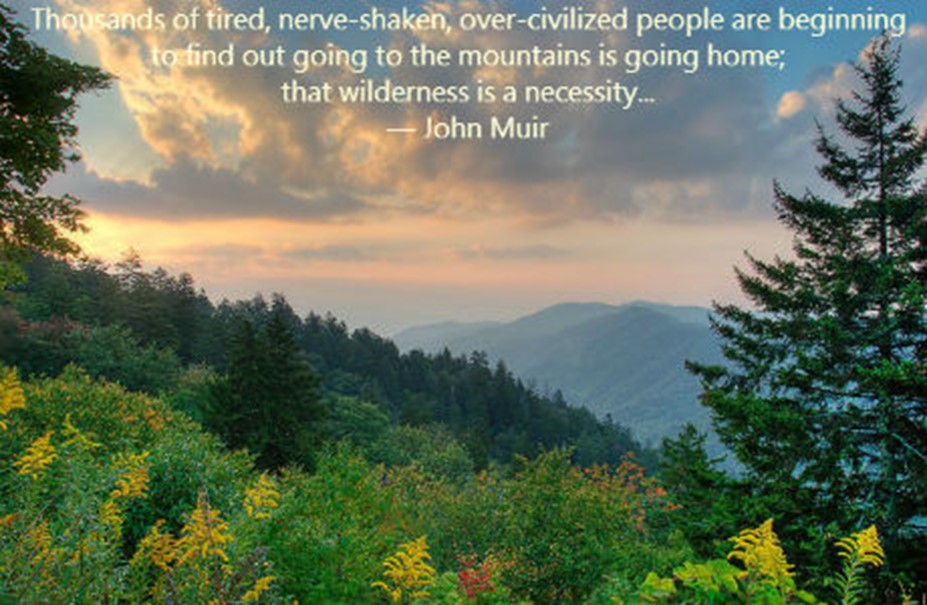


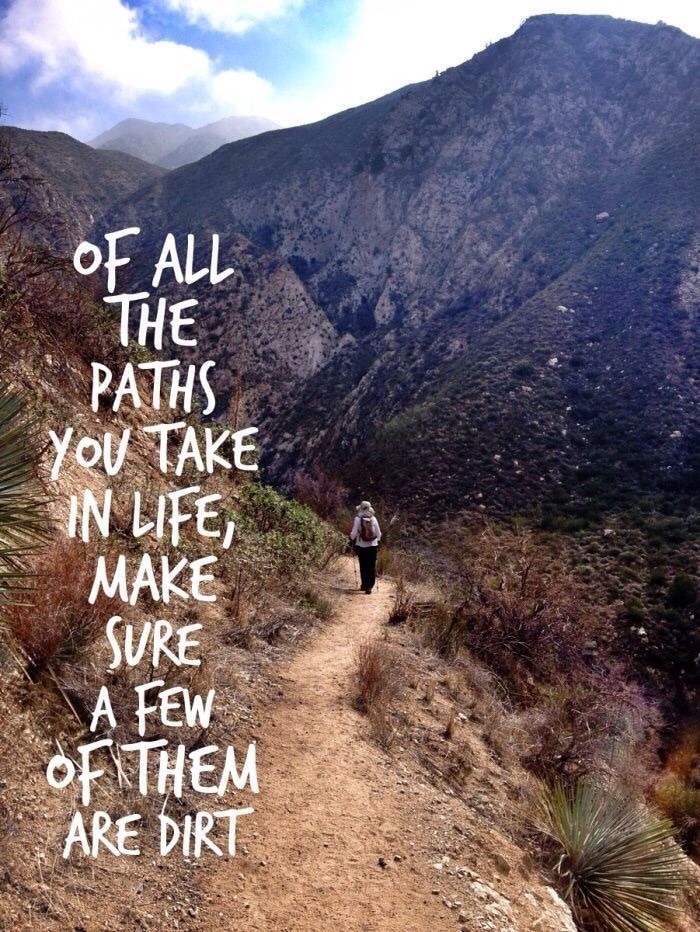
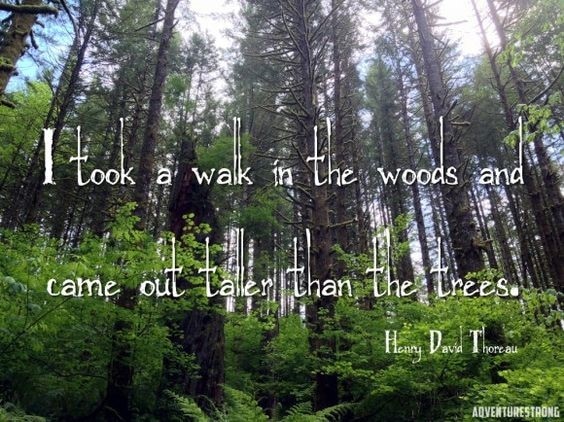
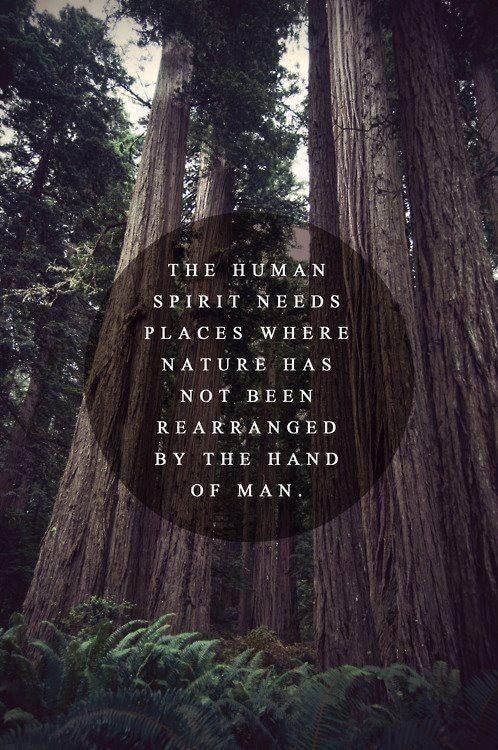
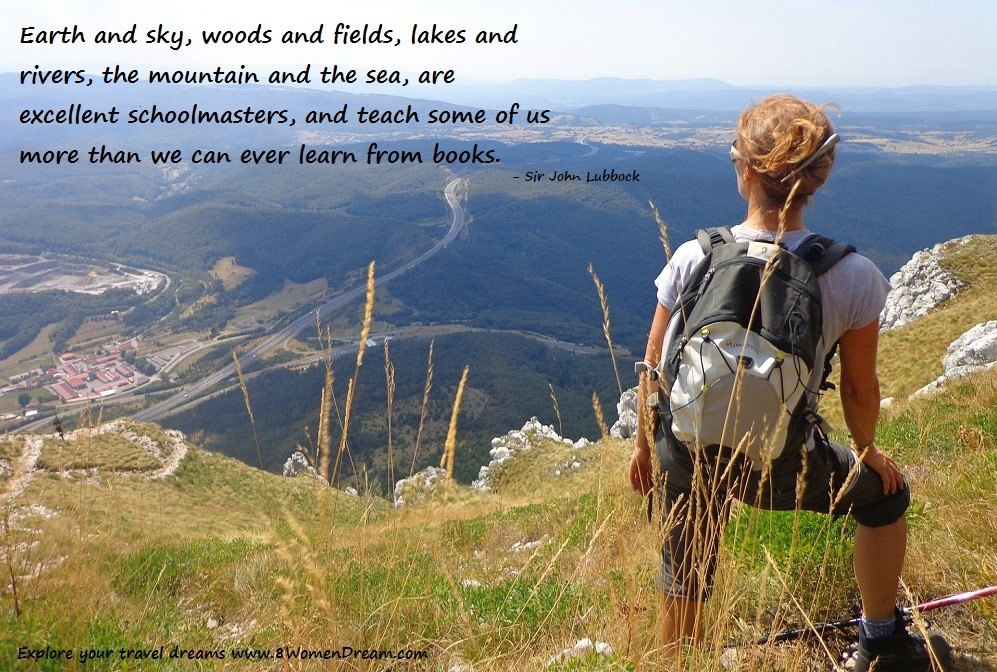
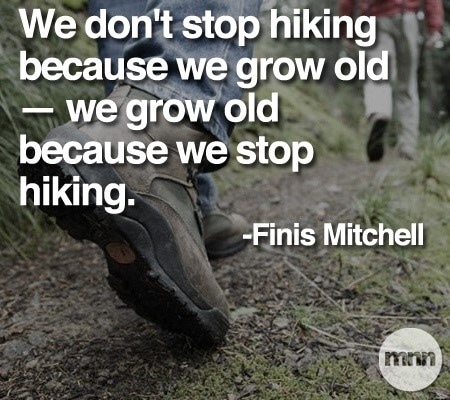
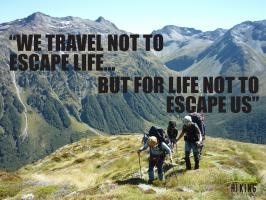


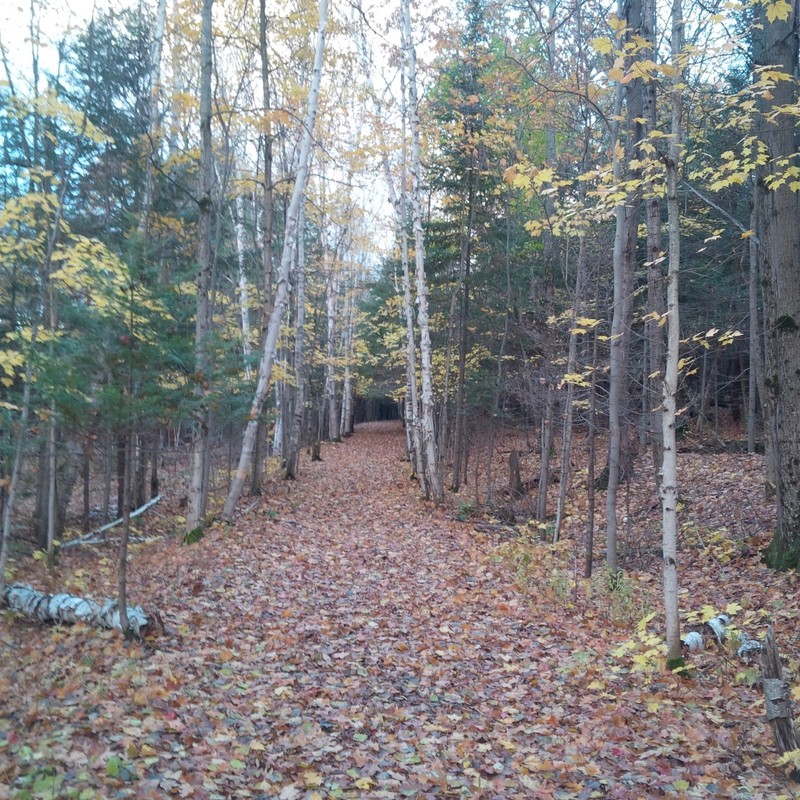
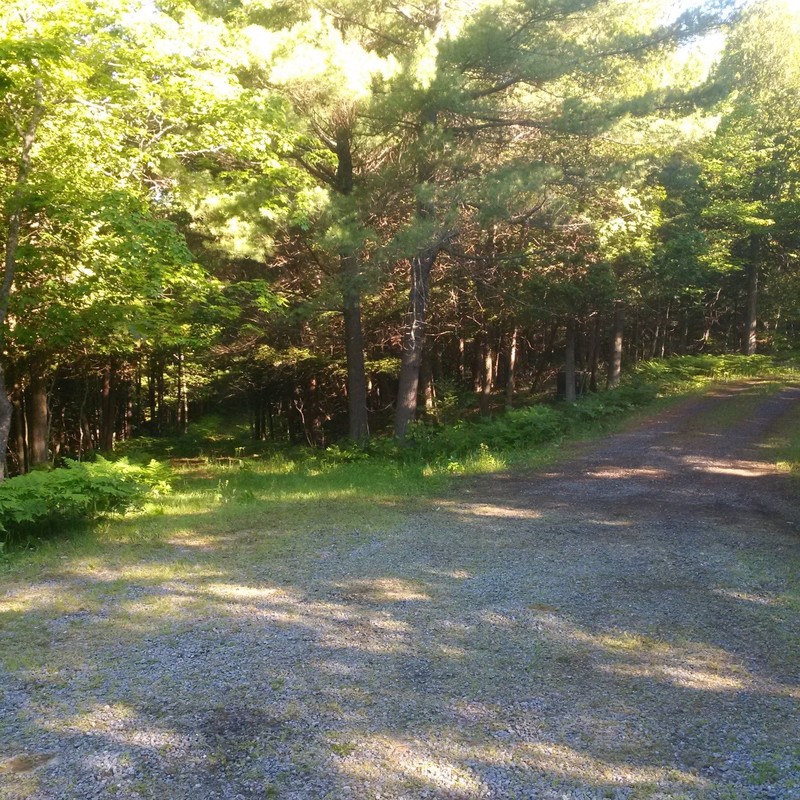
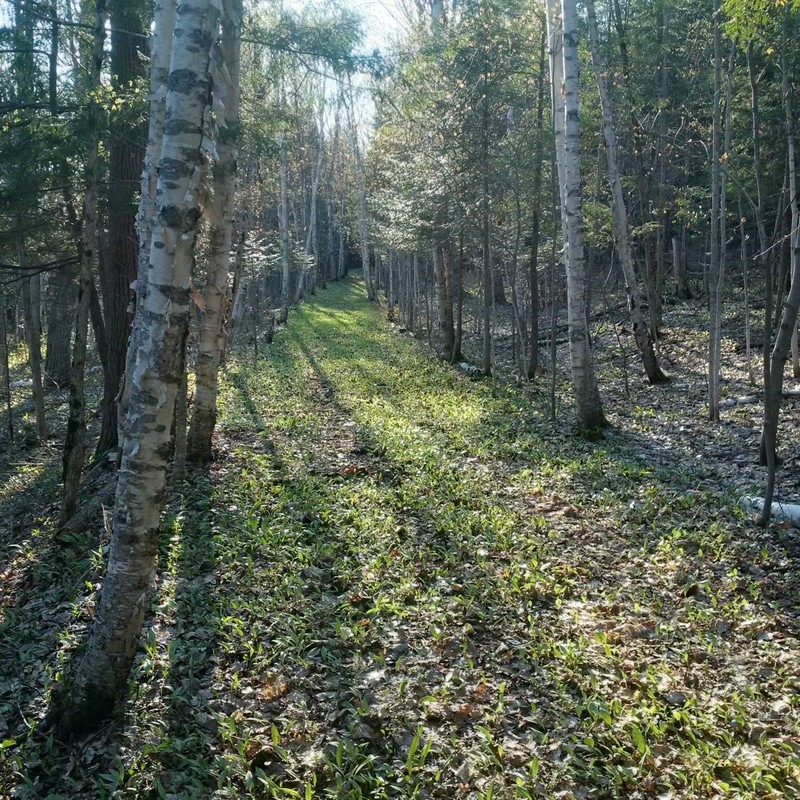





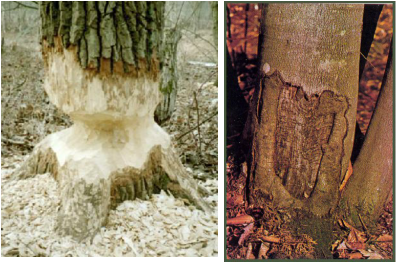



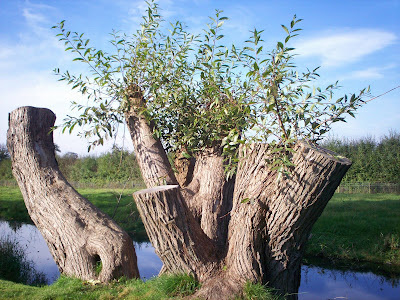

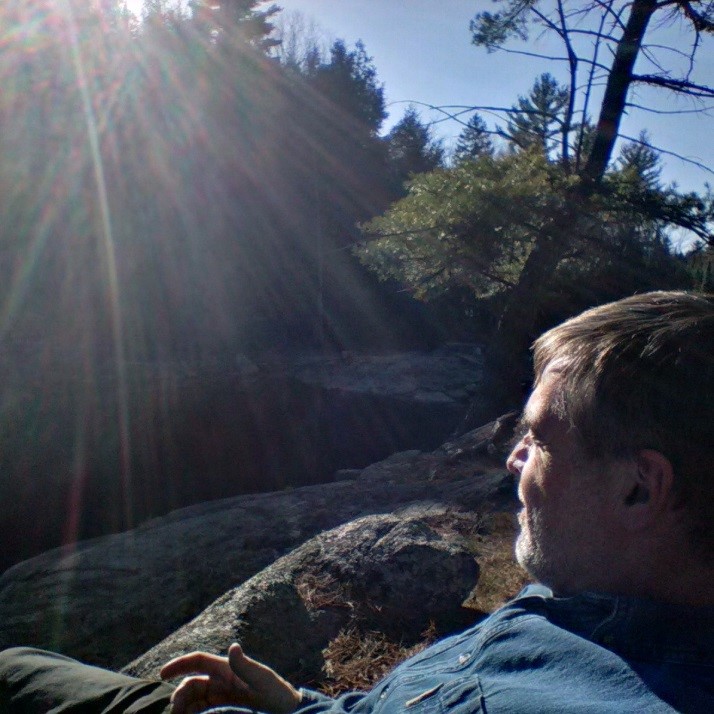
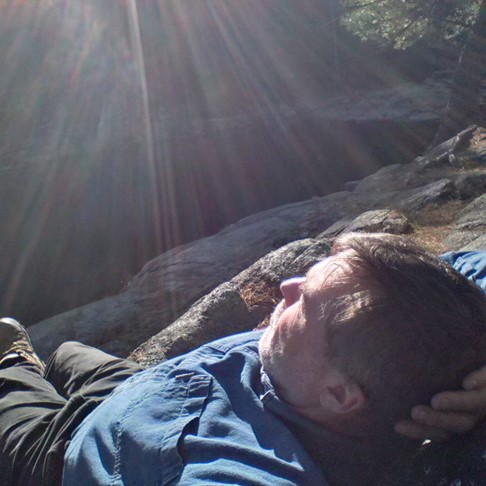
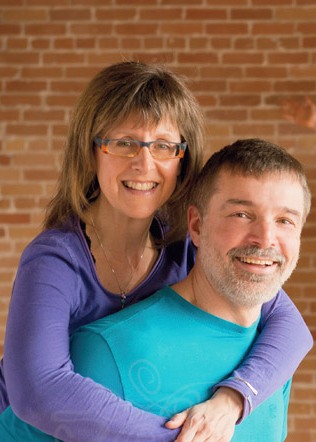
 RSS Feed
RSS Feed
